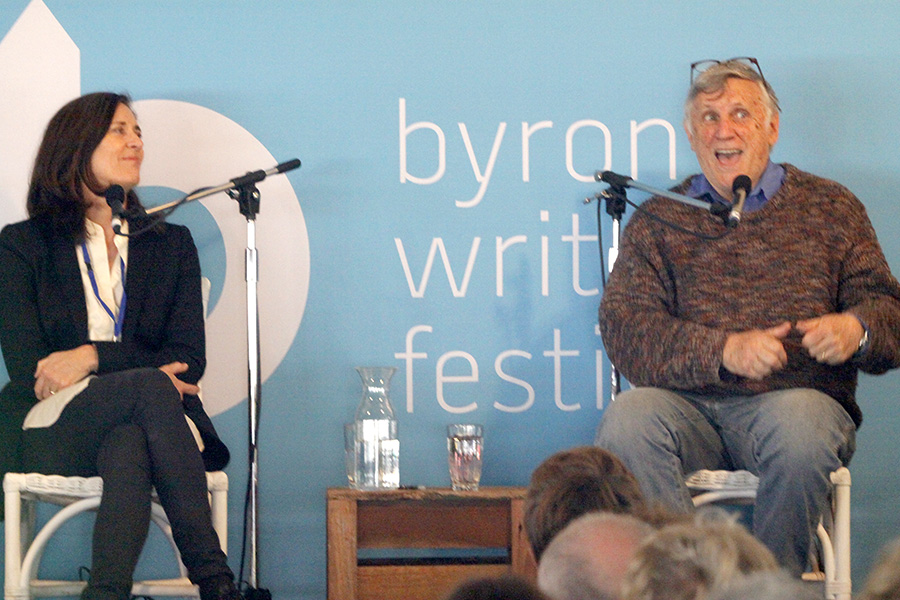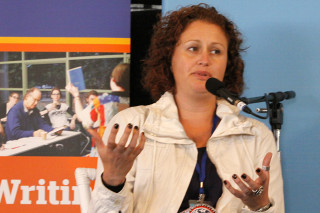Education: Where every child matters

Most of us probably remember, however vaguely, what it was like to be in school. There’s this sense of the collective school experience, where everyone knows what it’s like to be patronized, to feel disconnected with a system that teaches students to take tests rather than educating them to exist in the real world.
The panel Education: Where Every Child Matters brought together three former and current teachers to talk about their experience, both as students and as educators, with chair journalist Julia Baird on the first day of the Byron Writers Festival 2016.
As the discussion rolled out, it became overwhelmingly clear that the panellists believe the education system in Australia, which has remained largely unchanged since its inception, is in need of an overhaul.
The main complaint? Politics are putting a stop to change, and no one is listening to the people who know best about what works and what doesn’t – that is, the kids being taught and the teachers teaching them.
John Marsden, author of The Tomorrow Series also a principal blamed ‘the dead hand of bureaucracy’, which, he said. had ‘come to rest heavily on Australian schools’.
Marsden has led an interesting life having been a truck driver, an abattoir worker, and almost everything in between. But his passion on the subject of education is clear, as is his disdain for the amount of paperwork he has to fill out as an educator, thus detracting his attention from the kids he is meant to teach.
Lucy Clarke, a seasoned journalist and author of Beautiful Failures, labelled Australia’s education system ‘archaic’ because it relies largely on putting students straight from tests to work with little concern for the in-between. That is, the focus is more on passing the tests than giving children a chance to not only learn but to be excited about knowledge.
‘Shouldn’t school be for every child to have the opportunity to reach their potential?’ she asked.
Clarke suggests that the best way to accomplish this is to easy – start putting teachers into parliament. It seems so simple, and yet the Ministers for Education have historically been just about everyone but teachers. This brings us back to the earlier statement about politics in education.

If you’re going to legislate on education, it might be worth consulting people who have the experience to make decisions for the good of every child, and not just a one-size-fits-all system that leaves kids behind or leaves them unenthused about education. What’s more, it might be worth it to stop treating data as a be-all and end-all for whether or not a system works, a fact that Gabbie Stroud, freelance writer and author, brings up when speaking of her own experience as an educator.
When Stroud was a teacher, she came to the terrifying realization that the system, which she was reinforcing by being an educator, was wrong. This realization culminated in a two-week stay in her bed, trying to deal with the reality of the education system. At the end of the day, teachers are just as much a casualty of the system as children are, being unable to help every kid who walks into their classrooms simply because they haven’t been given the tools to do so.
While the future seems a little bit bleak for the Australian education system, this panel leaves me with some hope for the future. Passionate people like today’s panelists, whether they stay in education or move on to write their experiences down, are exactly the sort of people that we should have to inform us on how to proceed. Change can only begin when we sit down and have a conversation.
Report by Megan A. Morgan, a Writing/Visual Arts student at Southern Cross University. Originally from Massachusetts, she holds a prior degree in English from Umass Amherst.
